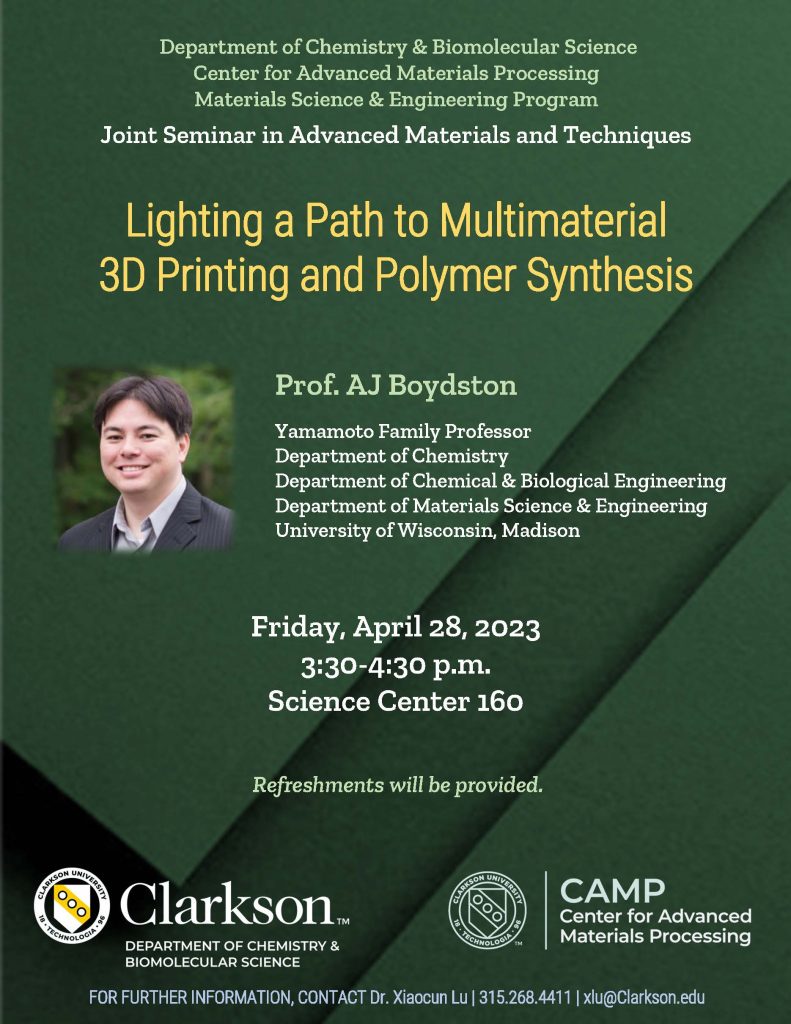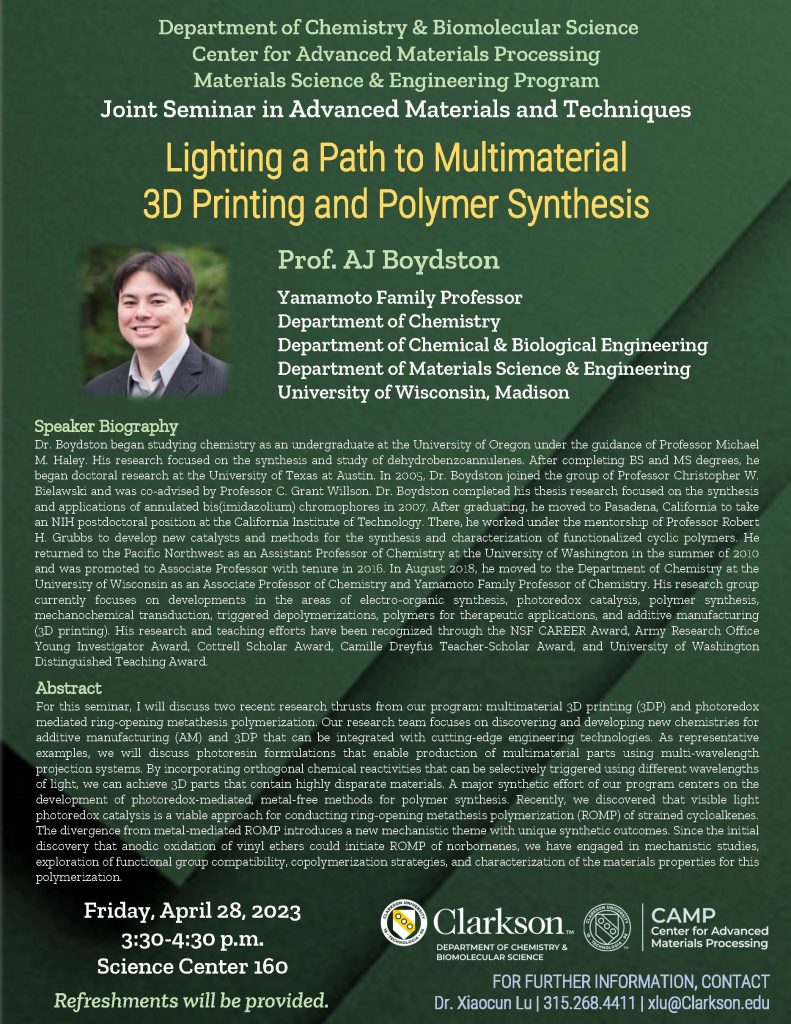
The final spring 2023 Chemistry Seminar – co-sponsored by the Center for Advanced Materials Processing and the Materials Science & Engineering Program – features Prof. AJ Boydston presenting “Lighting a Path to Multi-material 3D Printing and Polymer Synthesis”.
Friday, April 28, 2023
3:30 – 4:30 PM
Science Center 160
Prof. A.J. Boydston, Yamamoto Family Professor at the University of Wisconsin-Madison, moved to the Department of Chemistry at the University of Wisconsin in 2018 as an Associate Professor of Chemistry and Yamamoto Family Professor of Chemistry. His research group currently focuses on developments in the areas of electro-organic synthesis, photoredox catalysis, polymer synthesis, mechanochemical transduction, triggered depolymerizations, polymers for therapeutic applications, and additive manufacturing (3D printing). His research and teaching efforts have been recognized through the NSF CAREER Award, Army Research Office Young Investigator Award, Cottrell Scholar Award, Camille Dreyfus Teacher-Scholar Award, and University of Washington Distinguished Teaching Award.
Lighting a Path to Multi-material 3D Printing and Polymer Synthesis
Abstract:
For this seminar, I will discuss two recent research thrusts from our program: multi-material 3D printing (3DP) and photoredox mediated ring-opening metathesis polymerization. Our research team focuses on discovering and developing new chemistries for additive manufacturing (AM) and 3DP that can be integrated with cutting-edge engineering technologies. As representative examples, we will discuss photoresin formulations that enable production of multimaterial parts using multi-wavelength projection systems. By incorporating orthogonal chemical reactivities that can be selectively triggered using different wavelengths of light, we can achieve 3D parts that contain highly disparate materials. A major synthetic effort of our program centers on the development of photoredox-mediated, metal-free methods for polymer synthesis. Recently, we discovered that visible light photoredox catalysis is a viable approach for conducting ring-opening metathesis polymerization (ROMP) of strained cycloalkenes. The divergence from metal-mediated ROMP introduces a new mechanistic theme with unique synthetic outcomes. Since the initial discovery that anodic oxidation of vinyl ethers could initiate ROMP of norbornenes, we have engaged in mechanistic studies, exploration of functional group compatibility, copolymerization strategies, and characterization of the materials properties for this polymerization.

